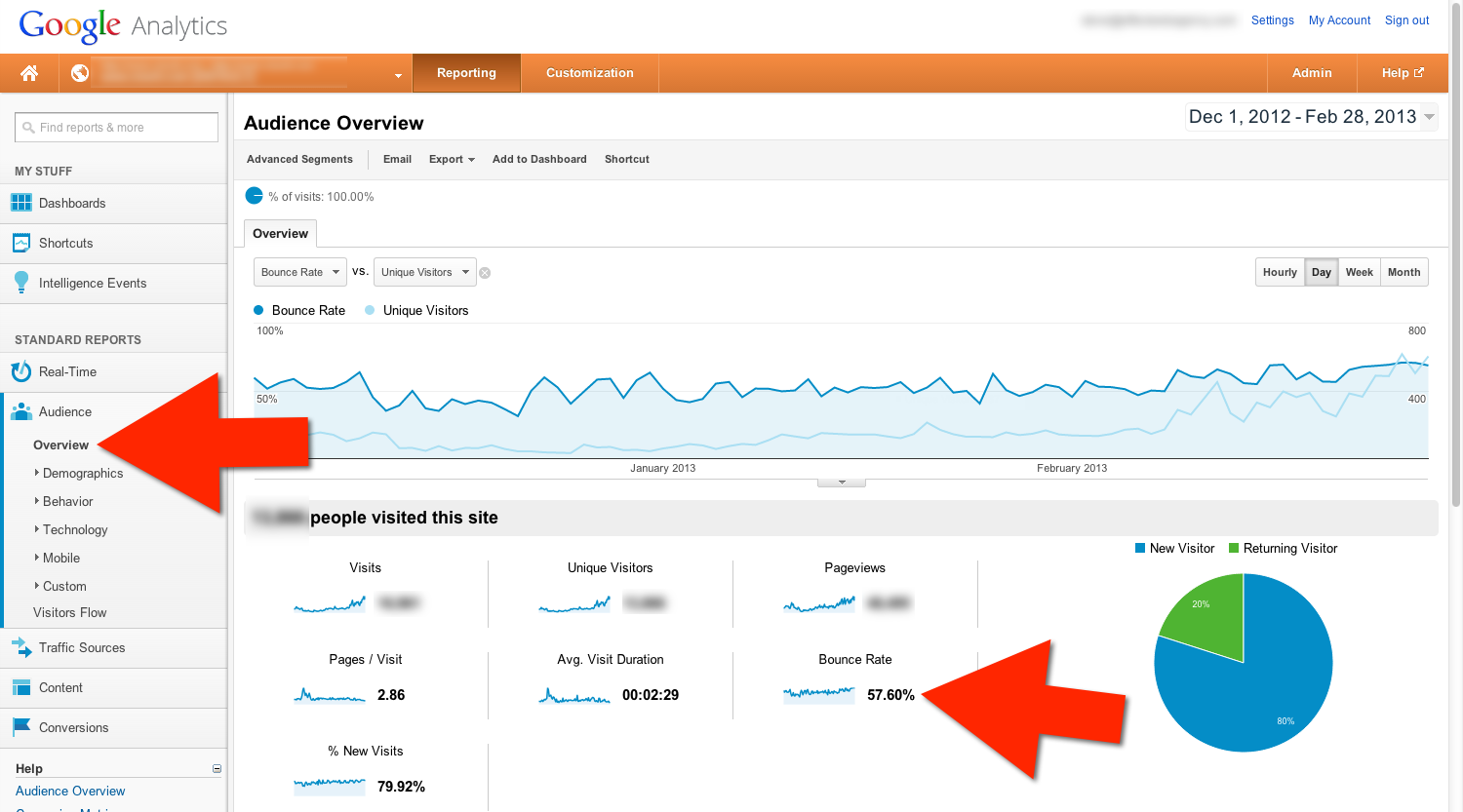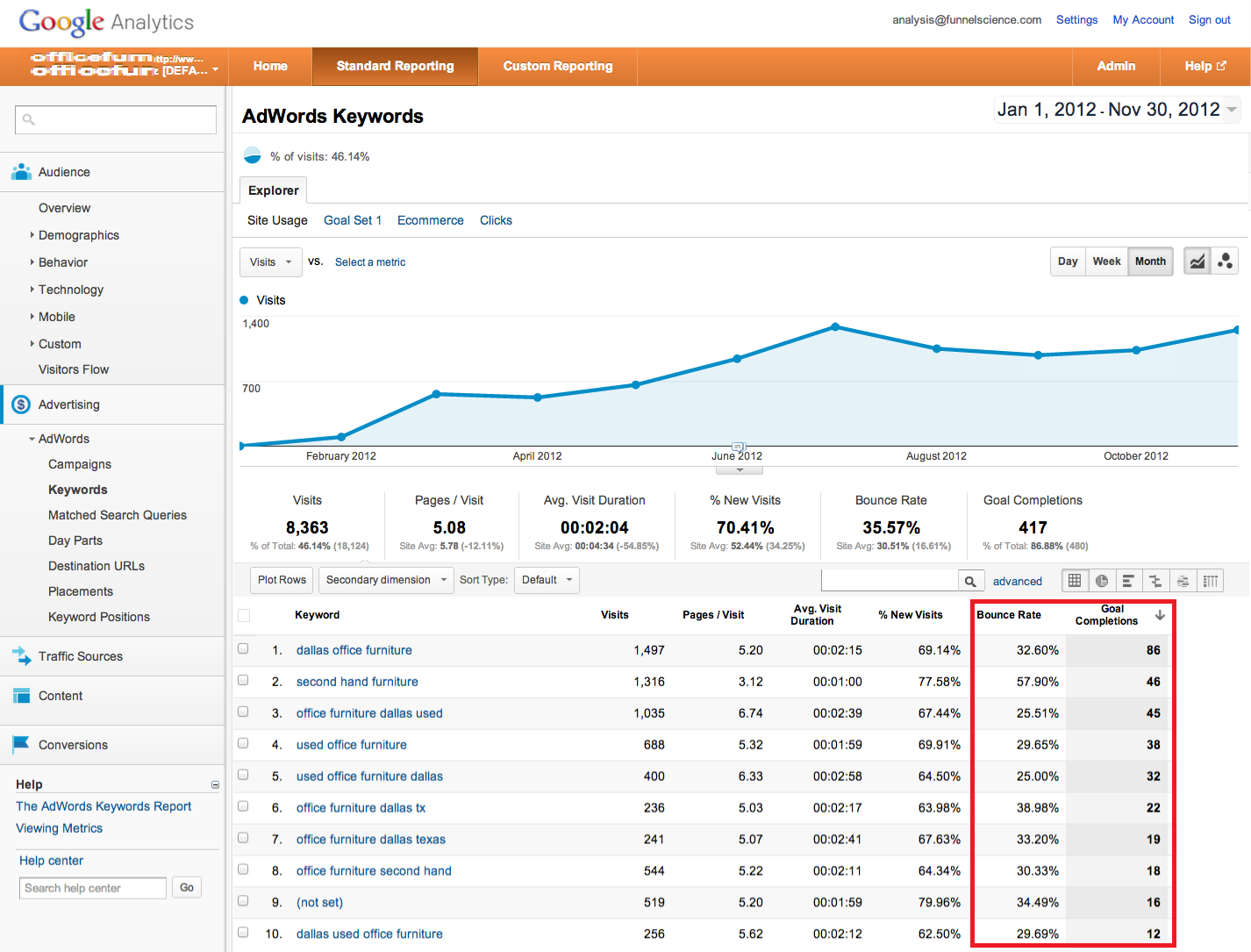Things to Check Every Month in Google Analytics
By: SmallBizClub

As a small business, you will naturally be working harder to keep on top of competition. You want to have a strategy based on current statistical analysis to drive the productivity and expansion of your business.
If you are not already using Google Analytics to do so, then now is a great time to start!
If you’re new to Analytics, it might be useful to read the Small Business Guide to Google Analytics before doing anything else. Once you have gotten a start, then it’s simply a matter of using this information to expand and improve your business.
Analytics by default will show you results from the past month, which should be a good amount of time to evaluate your site on a regular basis. So whether you’re a beginner or a seasoned Analytics user there are certain things you should be checking each month.
So why should you be checking every month?
If you’re doing something wrong on your site, you don’t want to let it drag on for too long. It’s easier to fix problems and improve on issues during earlier stages. At the same time you don’t want to be checking too regularly, as your time bracket is probably too short to see any real patterns which indicate whether things are going well or not.
Your Google Analytics monthly checklist:
Once you have your Google Analytics up and running, here is your monthly checklist:
Source: John Scott Yoga
1. Page views (per visitor)
Which pages and what types of content are being viewed the most? What are the most prominent trends? What are the contributing factors as to why these pages perform so well? Are there any significant drops and spikes on these pages? Monitoring your page view every month gives you a good indication of what kind of content is trending at a particular time, and why it’s trending. After all, you want to be focusing on content that people are actually interested in.
You also want to monitor how many page views per visitor as this gives an indication of how much people are exploring your site.
2. Bounce rate and time spent on site
Alongside the importance of checking up on your page views, it is also really important to check your bounce rates.
As a general rule, if your website shows a high bounce rate, Google will assume that your page is of a low quality.
You want to find out which pages are causing your visitors to click away. From there you can improve and solve any issues and bring more engagement to your site. While page views are important, you can’t downgrade the importance of engagement on your site. You want people to explore your site, so when people are visiting one page and then clicking away, you’ll want to find out why.
There are some exceptions to this, however.
For example, a person searching for something on Google is directed to a long blog post on your site. Then they are satisfied with that information, and leave. So consider the time spent on the site along with bounce rates, as they often go hand in hand when analyzing data.
3. Devices/browsers
We have seen recently that more and more people are turning to browsing on their mobile devices as opposed to the traditional desktop, so this should be an important piece of data you can gain from Analytics. You need to figure out how people are viewing your site the most, so you can optimize the site for better viewing on that platform. Having a well-presented site actually reduces your bounce rate, so it always pays to consider aesthetics.
4. Traffic source
Google Analytics lets you know whether the traffic to your site is search traffic, referral traffic or direct traffic, which allows you to find out how exactly people are finding their way to your site. This will let you know which platform you should be focusing your efforts in.
5. Keywords
Certain keywords will be performing better on your site, and there is a reason for that. Figure out what the most popular keywords are, and this will give you an indication of what people are doing on your site, and what keywords they are typing into Google to reach your site.
So what exactly can Google Analytics do for you as a small business?
Generating leads
As a small business which is trying to expand, one of the main things you need to worry about is lead generation. Naturally, it is more difficult to do as a smaller business with a smaller budget. So how do you get around this?
Google analytics is a great tool for developing a more accurate and efficient lead generation strategy through higher familiarity with your audience, and their visitation patterns and how they navigate through your site. Keeping in the loop with monthly evaluation of analytics, you should be able to identify problematic factors in order to optimize and improve their experience on your site.
Enhancing brand image
Getting your business’s brand image out there and recognized is incredibly important, however as a small, generally unknown business this is often a challenge.
Google analytics can help track brand awareness and KPIs by breaking down site traffic sources. This should give you a good indication of how many visitors are coming to your site with a prior knowledge of your brand.
With that in mind you can focus your energy in ways which you already know will be effective.
Source: Reembed
SEO and AdWords management
You have a small budget, so it’s important to know where to spend money to get the best results.
Google Analytics presents you with helpful insights of how your ads are performing, which should help you to focus on what is working and what you need to change or improve. Figuring out where your traffic is coming from and which keywords will drive traffic to your site are great ways to save you a lot of money and allow you to set a better focus for current and future AdWords campaigns.
Use information to move forward!
By keeping up-to-date with your latest statistics from Google Analytics you should be able to constantly improve and expand your small business. Big ambitions take a lot of time and a lot of planning, and if you play your cards right, the results will speak for themselves.
Author: Julian Roben is Senior Account Manager of Matter Solutions. Matter Solutions are experts in digital marketing with over 15 years of experience in SEO and Webdesign.
5197 Views
















